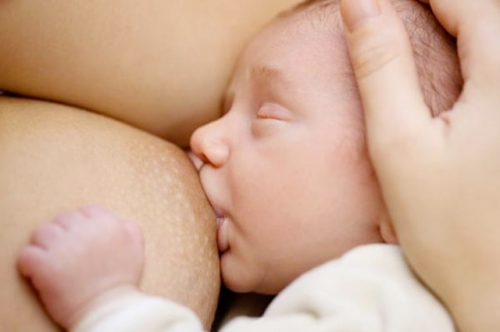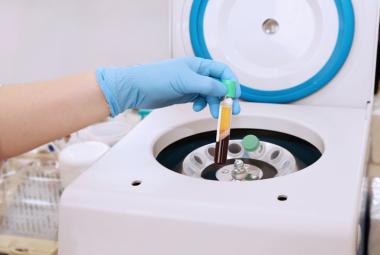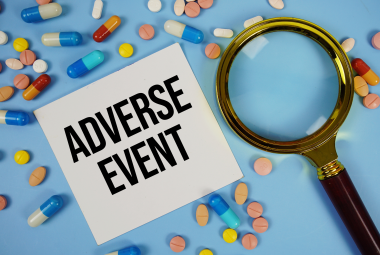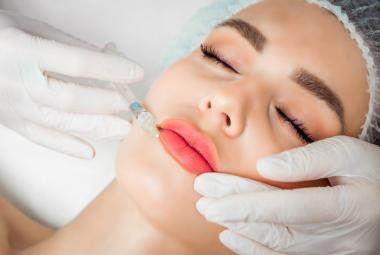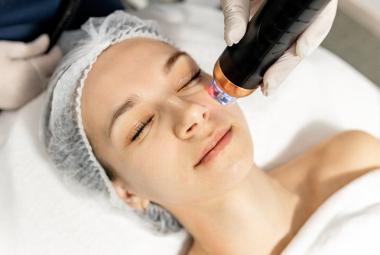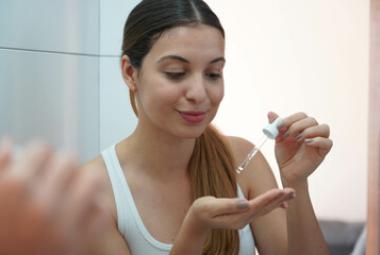Even in the face of the COVID-19 pandemic, breastfeeding is still safe and highly recommended. Current guidelines from all of the major health organizations, including the World Health Organization,1 UNICEF,2 The American College of Obstetrics and Gynecology,3 American Academy of Pediatrics,4 and the CDC,5 are in agreement that mothers can and should breastfeed their newborns even if they are positive for COVID-19.
Risk of Viral Transfer
The risk of viral transfer from a mother to her infant through breast milk seems to be very low. In the limited studies available so far, there is little evidence to suggest that there is a risk of SARS-CoV-2, the virus that causes COVID-19, being transmitted from mother to baby via breast milk. A systematic review of 8 studies showed that of 24 different pregnant women with COVID-19 pneumonia during their 3rd trimester, none of their breast milk samples were positive for SARS-CoV-2 genetic material, and thus could not cause infection.6 Therefore, it appears that vertical transfer of the virus through breast milk is unlikely; rather, the risk of viral transfer is through respiratory droplets and secretions from infected persons to the newborn.7
Risk of Anti-viral Medication Transfer
Though studies are very limited, there is currently no evidence of adverse events in breastfed infants of mothers being treated for COVID-19. Remdesivir therapy, the most commonly used anti-viral medication for COVID-19 at this time, has an unknown risk of transfer into breast milk. However, evidence from the Ebola pandemic, in which mothers were treated with remdesivir, found no negative effects on the newborns.8
There is currently no data about breastfeeding with COVID-19 treatment using the monoclonal antibodies bamlanibimab, casirivimab, and imdevimab.9 However, other similar treatments have very low transfer into breastmilk.10 Due to their large size and likely lack of an active transport mechanism into breastmilk, we do not expect these substances to be found in breastmilk in clinically relevant amounts.
Although risks of these medications are unknown, there is a lack of evidence of any harm, and we know that there are clear risks associated with not breastfeeding; therefore, the major health organizations recommend breastfeeding through an active coronavirus infection to avoid the risks associated with not breastfeeding.
Benefits of Breastfeeding
The immunological advantages that the baby receives from breast milk is crucial, particularly during the pandemic. Immunoglobulin A (IgA) is an antibody created by mothers in defense of different microbes that they have encountered. IgA transfers in high amounts through breast milk to give breastfed children the benefit of passive immunity to these microbes. Thus, there is a potential for passing on immunological defenses specific to COVID-19 through breast milk.11 Additionally, the immunological advantages of breastfeeding is a crucial benefit to an infant of a COVID-19 positive mother as they leave the hospital to a home in which they will undoubtedly be exposed further to SARS-CoV-2 as well as other pathogens. Further benefits to the baby include decreased risk of Sudden Infant Death Syndrome (SIDS), decreased risk of gastrointestinal, respiratory, and ear infections, improved cognitive development and reductions in adult obesity and diabetes rates.12 Benefits to the mom include reduced postpartum blues and depression rates, strengthened bonding with baby, improved birth spacing, and reduced risk of developing future diabetes, cardiovascular disease, and breast cancer.12
Guidelines for breastfeeding with COVID-19
Guidelines for COVID-19 positive mothers and their infants have changed dramatically since the start of the pandemic. Initially, infected mothers in Wuhan were urged to stay isolated from their newborns and forgo breastfeeding. On March 18th, 2020 the WHO released their recommendations that allowed for direct breastfeeding of the infant with certain precautions if possible.13 It now seems not only safe but is highly recommended by all of the major global health organizations for COVID-positive women to breastfeed directly and have skin-to-skin contact with their newborns if certain precautions are taken to minimize transfer by respiratory droplets and secretions, the main method of viral transmission for COVID-19.14 These precautions include:
- Wash hands with soap and water prior to touching the baby.1-5
- Wear a face mask while feeding.1-5
- Wash feeding equipment such as pumps and bottles with soap and water prior to feeding.1-5
- Frequently sanitize all high contact surfaces in the environment.1-5
- If a mother is too ill to breastfeed directly, the next best option would be to express milk to be fed to the infant remotely; however, all efforts should be given to keeping mother and child dyad together and supporting continued expression of milk to maintain milk stores.1-5
It is recommended that these precautions be followed for all direct contact between mother and baby until she has two negative SARS-CoV-2 tests at least 24 hours apart and remains fever-free without the use of fever-reducing medications.8 With these protections in place, mom and infant need not be separated and breastfeeding as was once recommended.
If a mother with confirmed COVID-19 is unable to breastfeed, the best alternatives in this order are: 1) expressed breast milk, 2) donor human milk, 3) wet nursing, and 4) infant formula as a last option.15
It is notable that previously the American Academy of Pediatrics had recommended washing the breast prior to feeding; however, it has since removed that recommendation likely because of the risk of nipple dryness and damage through frequent washing16 and the reduction in benefit to the baby’s microbiome by stripping the nipple of its natural surface bacteria.17
Final Takeaways
Considering the importance of breastfeeding for a baby’s immunological development as well as the short- and long-term health effects for both the mother and infant, breastfeeding can be continued and should be encouraged even among mothers ill with COVID-19. Mothers who face resistance or barriers to breastfeeding from their hospital or healthcare providers can find resources at the International Lactation Consultant Association website on implementing safe breastfeeding through a certified lactation consultant. With a few modifications to reflect the dangers of living in the COVID-19 pandemic, mothers with COVID-19 and their infants can prevent many illnesses and promote future health through continued breastfeeding.
Jasmine Chan, MS3
Christine D Garner, PhD, RD, CLC
Citations
1. Breastfeeding and COVID-19. World Health Organization; 06/23/2020, 2020. Accessed November 23, 2020. https://www.who.int/news-room/commentaries/detail/breastfeeding-and-covid-19
2. Breastfeeding safely during the COVID-19 Pandemic. UNICEF; May 28, 2020, 2020. Accessed Nov 23, 2020. https://www.unicef.org/coronavirus/breastfeeding-safely-during-covid-19-pandemic
3. Novel Coronavirus 2019 (COVID-19). American College of Obstetricians and Gynecologists; Nov 6, 2020, 2020. Accessed Nov 23, 2020. https://www.acog.org/clinical/clinical-guidance/practice-advisory/articles/2020/03/novel-coronavirus-2019
4. Breastfeeding Guidance Post Hospital Discharge for Mothers or Infants wiht Suspected or Confirmed SARS-CoV-2 Infection. American Academy of Pediatrics; Sep 18, 2020, 2020. Accessed Nov 23, 2020. https://services.aap.org/en/pages/2019-novel-coronavirus-covid-19-infections/clinical-guidance/breastfeeding-guidance-post-hospital-discharge/
5. Coronavirus Disease (COVID-19) and Breastfeeding. Centers for Disease Control and Prevention; Jun 4, 2020, 2020. Accessed Nov 23, 2020. https://www.cdc.gov/breastfeeding/breastfeeding-special-circumstances/maternal-or-infant-illnesses/covid-19-and-breastfeeding.html
6. Martins-Filho PR, Santos VS, Santos Jr HP. To breastfeed or not to breastfeed? Lack of evidence on the presence of SARS-CoV-2 in breastmilk of pregnant women with COVID-19. Revista Panamericana de Salud Pública. 2020;44:e59.
7. Cheema R, Partridge E, Kair LR, et al. Protecting Breastfeeding during the COVID-19 Pandemic. Am J Perinatol. // (EFirst)doi:10.1055/s-0040-1714277
8. Dörnemann J, Burzio C, Ronsse A, et al. First newborn baby to receive experimental therapies survives Ebola virus disease. The Journal of infectious diseases. 2017;215(2):171-174.
9. News Division. HHS Allocates Regeneron Therapeutic to Treat Patients With Mild to Moderate COVID-19. HHS.gov; November 23, 2020, Accessed December 4, 2020. https://www.hhs.gov/about/news/2020/11/23/hhs-allocates-regeneron-therapeutic-treat-patients-mild-moderate-covid-19.html
10. Ben-Horin S, Yavzori M, Kopylov U, et al. Detection of infliximab in breast milk of nursing mothers with inflammatory bowel disease. Journal of Crohn's and Colitis. 2011;5(6):555-558.
11. Hanson LA. Breastfeeding provides passive and likely long-lasting active immunity. Annals of Allergy, Asthma & Immunology. 1998;81(6):523-537.
12. Victora CG, Bahl R, Barros AJ, et al. Breastfeeding in the 21st century: epidemiology, mechanisms, and lifelong effect. The Lancet. 2016;387(10017):475-490.
13. Pereira A, Cruz-Melguizo S, Adrien M, et al. Breastfeeding mothers with COVID-19 infection: a case series. International breastfeeding journal. 2020;15(1):1-8.
14. Meyerowitz EA, Richterman A, Gandhi RT, Sax PE. Transmission of SARS-CoV-2: a review of viral, host, and environmental factors. Annals of internal medicine. 2020;
15. World Health Organization. Frequently asked questions: Breastfeeding and COVID-19 for health care workers. Journal of Human Lactation. 2020;36:392-396.
16. Jacobs A, Abou-Dakn M, Becker K, et al. S3-guidelines for the treatment of inflammatory breast disease during the lactation period: AWMF guidelines, registry no. 015/071 (short version) awmf leitlinien-register nr. 015/071 (kurzfassung). Geburtshilfe und Frauenheilkunde. 2013;73(12):1202.
17. Pannaraj PS, Li F, Cerini C, et al. Association between breast milk bacterial communities and establishment and development of the infant gut microbiome. JAMA pediatrics. 2017;171(7):647-654.

